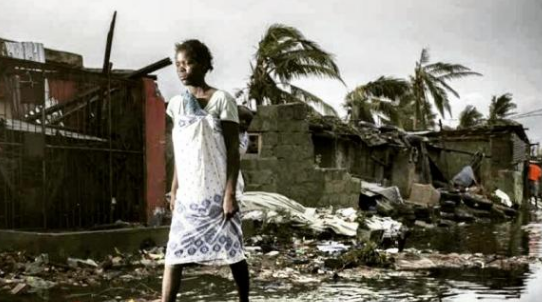Global warming leads to climate change, a significant threat to life due to extreme weather and flooding. Climate change refers to the rise of the sea due to hot oceans expanding and the melting of ice sheets and glaciers. The incident that resulted from climate change was a hurricane, Ida. A hurricane is a violently windy storm, and one of such meaningful events covered the territory of the Caribbean. Ida made an amphibious landing of four hurricanes south of New Orleans, causing substantial damage to infrastructure, trees, and electricity lines.
Hurricanes cause harm to human life in a variety of ways. Buildings’ destruction, demolishment, damage on infrastructure and electricity lines – all this led to human beings struggling to get back to their positions financially, emotionally, and physically, as shown in Figure 1.

Climate change is related to physical geography. It increases sea level because of the direct consequences of the melting of glaciers. There are more storms than before due to the warming of the ocean temperatures (Beggs et al., 2021). Thus, there has been more rainfall leading to damaging floods, which cripple the activities of the damaged population. Over the last century, the earth’s temperatures have increased by 1.5 °F and, if not controlled, might go up to 11.6 °F in the following century (Bonneuil et al., 2021). Climate change has led to the shrinking of Island nations due to increased sea levels. For instance, in 2009, there process of evacuation of Carter Island off the coast of Papua Guinea began. Other geographical changes caused by climate change include the disappearing of snows on mountain tops and retreating glaciers on national parks like the glaciers of Montana National Park. This destination is an excellent option for a hike, which is now in full retreat.
Atmospheric greenhouse gas concentration and accumulated heat have led the planet to uncharted territory with consequences for current and future generations. According to the World Meteorological Organization (2021), the last seven years are likely to be the warmest, depending on the date of the first nine months of 2021. The report combines inputs of various United Nations agencies, hydrological services, meteorological and scientific experts. It also obtained the latest scientific evidence, which shows how the planet has changed. A months’ worth of rainfall fell in hours in parts of Europe and China, leading to many causalities, floods, and billions of economic losses. Extreme heat has had a significant impact on the Mediterranean area. On August 11, a Station called Sicily went up to 48.8 °C, European record, while on August 14, it was the hottest in Madrid with a history of 42.7 °C.
The change of extreme climate heat and poor air quality increases human health complications. The most common problems include respiratory and heart conditions like renal failure, asthma, preterm birth, and other heat-related illnesses (Bonneuil et al., 2021). It may also lead to death for people both in rural and urban areas. The risk of large fires has increased in parts of California, causing air pollution to threaten people’s lives. Frequent heavy rains are a threat to health and expose people to water-borne illnesses. There is a threat to food safety and hence lowered nutritional value to staple foods like rice and wheat. In addition, climate change has resulted in notable effects on the environment. In soils, climate change has aggravated erosion, declined organic matter, lost soil biodiversity, and led to flooding and desertification. Climate change has also caused a shift in species distribution, ecosystem processes, and habitat structure. There are predictions that climate change would have a significant difference in water availability across Europe because of unpredictable patterns of rainfall and very intense storms.
References
Beggs, P. J., Zhang, Y., McGushin, A., Trueck, S., Linnenluecke, M. K., Bambrick, H., Berry, H. L., Jay, O., Rychetnik, L., Hanigan, I. C., Morgan, G. G., Guo, Y., Malik, A., Stevenson, M., Green, D., Johnston, F. J., McMichael, C., Hamilton, I., & Capon, A. G. (2021). The 2021 report of the MJA–Lancet Countdown on health and climate change: Australia increasingly out on a limb. Medical Journal of Australia, 215(9), 390-392. Web.
Bonneuil, C., Choquet, P. L., & Franta, B. (2021). Early warnings and emerging accountability: Total’s responses to global warming, 1971–2021. Global Environmental Change. Web.
World Meteorological Organization. (2021). Weather-related disasters increase over past 50 years, causing more damage but fewer deaths. WMO. Web.